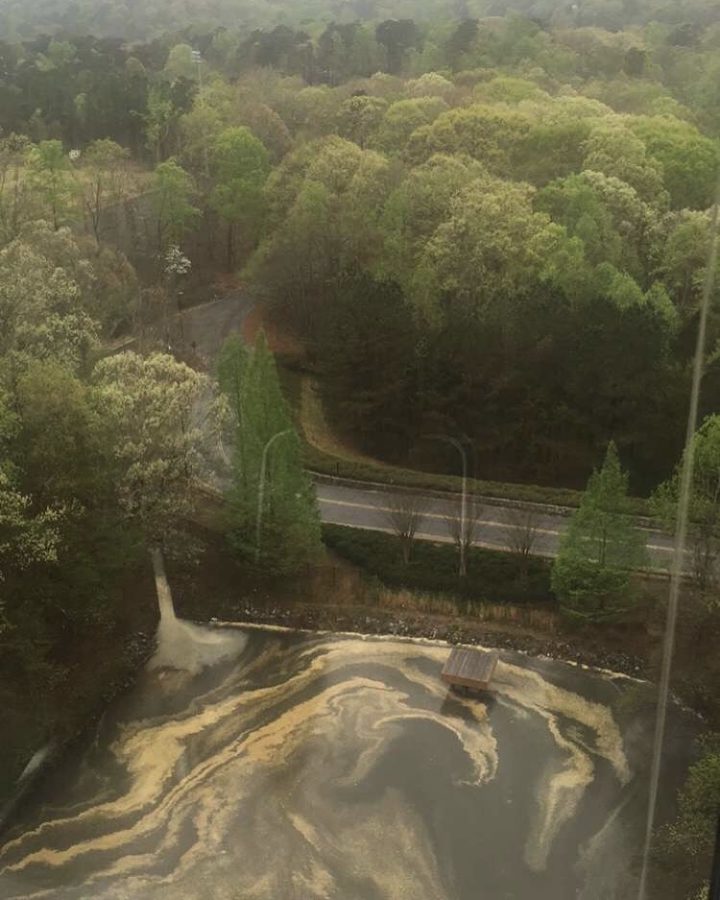The Pollen Count at North Atlanta is Way Up
The pollen is noticeable at North Atlanta as it floats on the surface of our lake.
This time of year can be sickening. Why? Look around you and see the yellow waves of micro-dust that causes your throat to tickle and your nose to run. Yes: Spring in Georgia means pollen.
Folk here in the South are used to pollen and Atlanta ranks among the top 100 cities with the worst pollen counts. But just because we’re used to it doesn’t mean we don’t suffer as we contend with things like sneezing, watery eyes and headaches.
Pollen is the most widespread allergy in the world. It’s actually comprised of small particles hitch rides on currents of air. And they do so with one reproductive mission in mind: fertilizing parts of other plants. But not all pollen particles reach its targets. More pollen particles than we like reach us, in fact. They enter human noses and throats, triggering a type of seasonal allergic reaction. This biological process is what makes many of us hate Mother Nature, and wish for the season’s passing. “I am literally dying,” said senior Summer Epps. “I can’t breathe and I can’t wait for spring to be over.”
As you can see not everyone enjoys the colors of spring. Even though pollen causes issues for many, it does keep plants alive, which is kind of important. So while it gives us allergies, it’s necessary to keep plants alive, plants that we depend on.
School nurse Lalena West sees pollen allergies at our school every year. “Symptoms always get worse in the springtime,” she said.
West said that she seems double the amount of students who come with issues during March and April.
Good for plants, though on humans. Pollen is a source of both life and pain, depending on which species you are. And as you’re clutching that hanky and suppressing a righteously loud sneeze during your math class, consider the marvels of pollen. Achoo.







